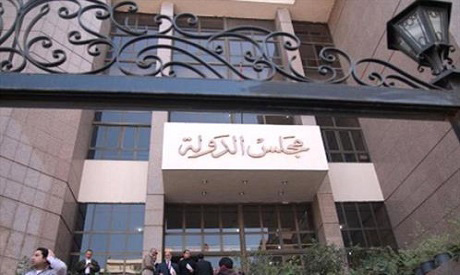
File photo: the State Council building in Cairo (Photo: Ahram Arabic news website)
The Egyptian State Council’s legislative department has issued a formal report to parliament rejecting proposed amendments to the judicial authority law that would give the president more powers in picking the heads of the country’s top judicial councils, a judicial source told Arabic Ahram website on Sunday.
The source said that the legislative department revised the draft law over several sessions, and concluded that the amendments would undermine the independence of the judiciary, which is guaranteed by the constitution.
The source added that the opinions of judicial bodies have not been taken into consideration regarding this draft law, which the source says represents a violation of the constitutional guarantee of a free judiciary.
On 27 March, parliament's constitutional and legislative affairs committee voted in favour of the draft law, which gives the president the right to appoint the heads of four of the country's top judicial councils.
The draft law, presented in December 2016, mandates that the president of the republic is to pick from three candidates nominated by each judicial council.
Most of the country's judicial councils say the law completely ignores seniority among judges, on the basis of which the heads of judicial councils are currently appointed.
The judicial councils mentioned in the law are the State Lawsuits Authority, the administrative prosecution, the Court of Cassation and the State Council.
Egypt's Judges Club has called for a meeting with President Abdel-Fattah El-Sisi to discuss the amendments.
The Judges Club, which represents judges across the country, said it has authorised its head to ask the presidency to act as a mediator to prevent a crisis between the judicial and legislative branches.
Some MPs have argued that an approval of the law by judicial bodies to the law is not mandatory under the constitution.
The MPs cite Article 185 of the constitution, which states that each judicial body or organisation shall merely be "consulted" when drafting bills regulating its affairs, but that their approval is not required.
Short link: